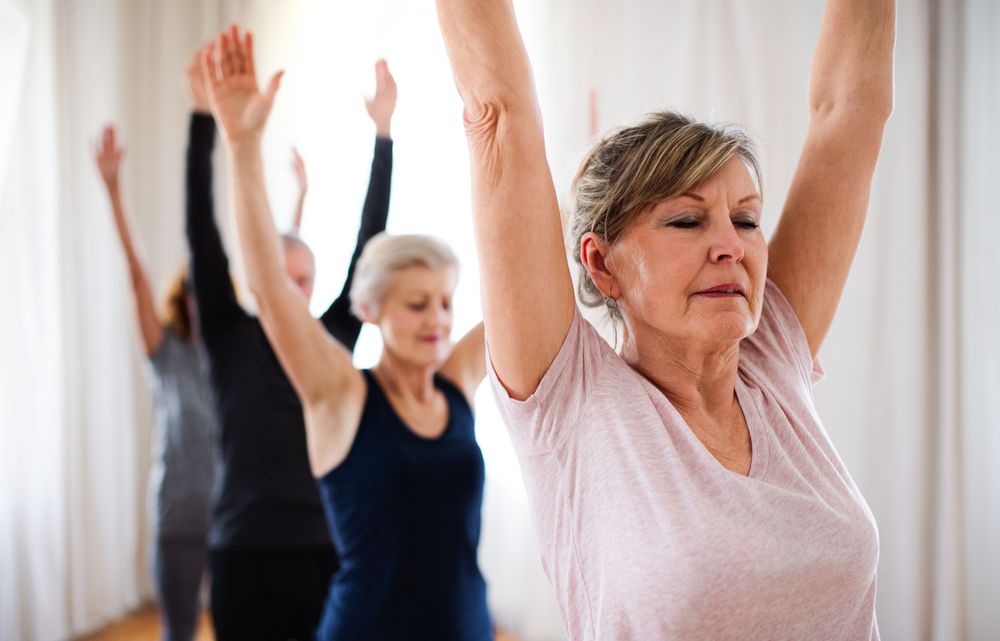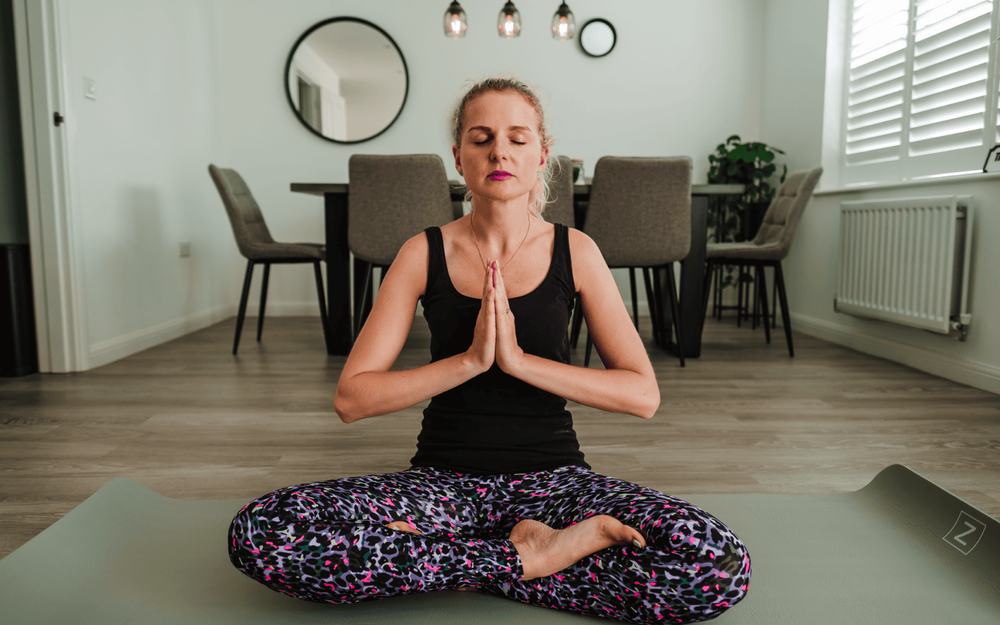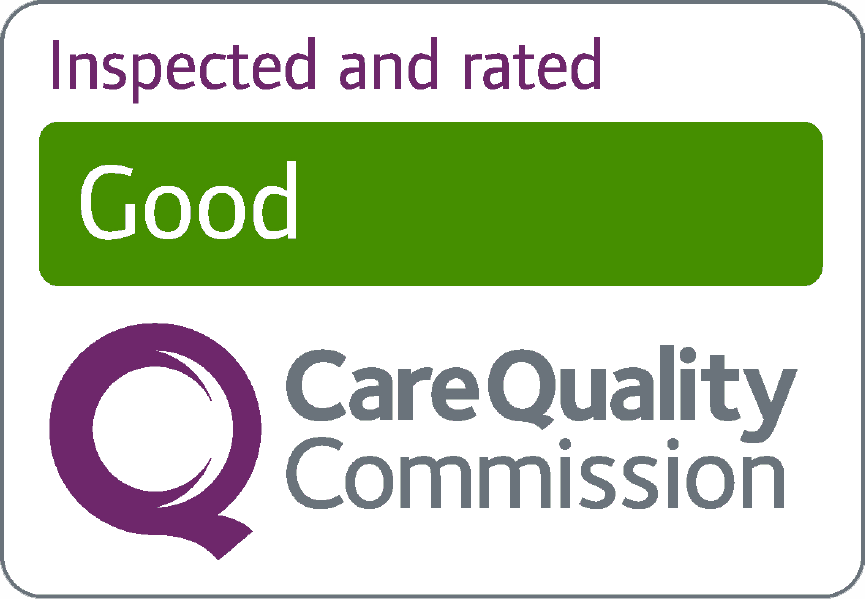
Night sweats and menopause: how to stop them
Waking up drenched in sweat is one of the more disruptive symptoms many women experience during menopause. Often striking in the middle of the night, night sweats can interfere with your sleep and leave you feeling drained the next day.
But why do they happen and what can you do about them?
In this guide, learn more about what causes night sweats during menopause, how they relate to hormonal changes and what practical steps you can take to feel more comfortable at night.
You’ll also learn how our Advanced Menopause Profile blood test can help you better understand where you are in menopause and support more informed choices for your wellbeing.
What are night sweats and why do they happen during menopause?
Night sweats are episodes of excessive sweating that occur while you sleep, often severe enough to soak your nightclothes or bedding. They’re one of the most common symptoms during menopause and can significantly impact your sleep quality and overall wellbeing.
These sudden surges of sweat are usually linked to falling oestrogen levels, which can affect the way your body regulates temperature. As your hormones fluctuate, your internal thermostat becomes more sensitive, triggering hot flushes and night sweats even when your environment isn’t particularly warm.
Understanding the stages of menopause and when night sweats occur
Menopause happens in stages, and symptoms like night sweats can appear at different points depending on how your hormones are shifting.
Here’s how night sweats can show up across the different phases:
- Perimenopause
This is the transitional phase before your periods stop. Oestrogen and progesterone levels start to fluctuate, which can trigger symptoms like:
- Night sweats
- Hot flushes
- Mood changes
- Irregular periods
Most women enter perimenopause in their 40s, but it can begin earlier.
- Menopause
Menopause is officially reached when you haven’t had a period for 12 months. Hormone levels remain low, and symptoms like night sweats can continue during this stage.
- Post-menopause
After menopause, some women continue to experience night sweats for a few more years. Over time, symptoms tend to ease, but every woman’s experience is different.
How to identify if your night sweats are linked to menopause
Night sweats can have several causes, including illness, medication side effects, or lifestyle factors - but for many women in their 40s or 50s, hormonal changes are a likely explanation.
You might suspect your night sweats are menopause-related if they’re accompanied by other common symptoms, such as:
-
Irregular or changing periods
-
Hot flushes during the day
-
Trouble sleeping or staying asleep
-
Mood changes or increased anxiety
-
Vaginal dryness or discomfort
-
Reduced libido
Tracking your symptoms over time can help build a clearer picture. If you’re experiencing several of these signs, it’s worth considering whether you’re in perimenopause or menopause.
A blood test, like the Advanced Menopause Profile, can provide further insight by measuring key hormones, giving you a better understanding of whether menopause is behind your night sweats.
The impact of night sweats on sleep and wellbeing
Frequent night sweats can do more than just disturb your sleep - they can also take a toll on how you feel day to day. Waking up multiple times in the night to change clothes or bedding can lead to broken, poor-quality sleep over time.
This lack of restful sleep can contribute to:
-
Daytime fatigue, making it harder to concentrate or feel productive
-
Irritability and mood swings, especially common when combined with other menopause symptoms
-
Low energy or motivation due to constant sleep disruption
-
Increased stress and anxiety as a result of ongoing discomfort and exhaustion
If you’re regularly losing sleep because of night sweats, it’s worth looking into what might be driving them. For many women, hormonal fluctuations are the main cause and understanding your hormone levels can be a helpful step toward finding the right support.
Lifestyle changes and practical tips to manage night sweats
While night sweats can be frustrating, there are several steps you can take to reduce their frequency and severity. Simple lifestyle changes can make a real difference to how comfortable you feel at night.
Here are some practical tips that may help:
-
Keep your bedroom cool Use a fan, open a window or adjust your bedding to help regulate your body temperature during the night.
-
Choose breathable fabrics Wear lightweight sleepwear and opt for natural bedding materials like cotton or bamboo.
-
Avoid triggers in the evening Caffeine, spicy foods, alcohol and smoking can all contribute to hot flushes and night sweats - especially when consumed close to bedtime.
-
Try relaxation techniques Stress can worsen menopause symptoms. Gentle yoga, mindfulness or deep breathing exercises before bed may help improve sleep quality.
-
Stay hydrated Drinking plenty of water throughout the day can help support your body’s temperature regulation.
-
Keep a symptom diary Tracking when your night sweats occur - and what you ate or did beforehand - can help identify potential triggers.
Navigate menopause with knowledge and confidence
Night sweats and other menopause symptoms can be challenging, but understanding what’s happening in your body can make a big difference. By learning more about your hormone levels and how they’re changing, you can take control of your health and make informed choices about managing your symptoms.
The Advanced Menopause Profile from Bluecrest Wellness offers a clear window into your hormone health. This private blood test checks five key female hormones and includes a GP consultation to help you interpret your results and decide on next steps - whether that’s lifestyle adjustments, treatment options or simply peace of mind.
Appointments are available across the UK at a time and location that works for you.
BOOK A PRIVATE ADVANCED MENOPAUSE PROFILE TEST TODAY














